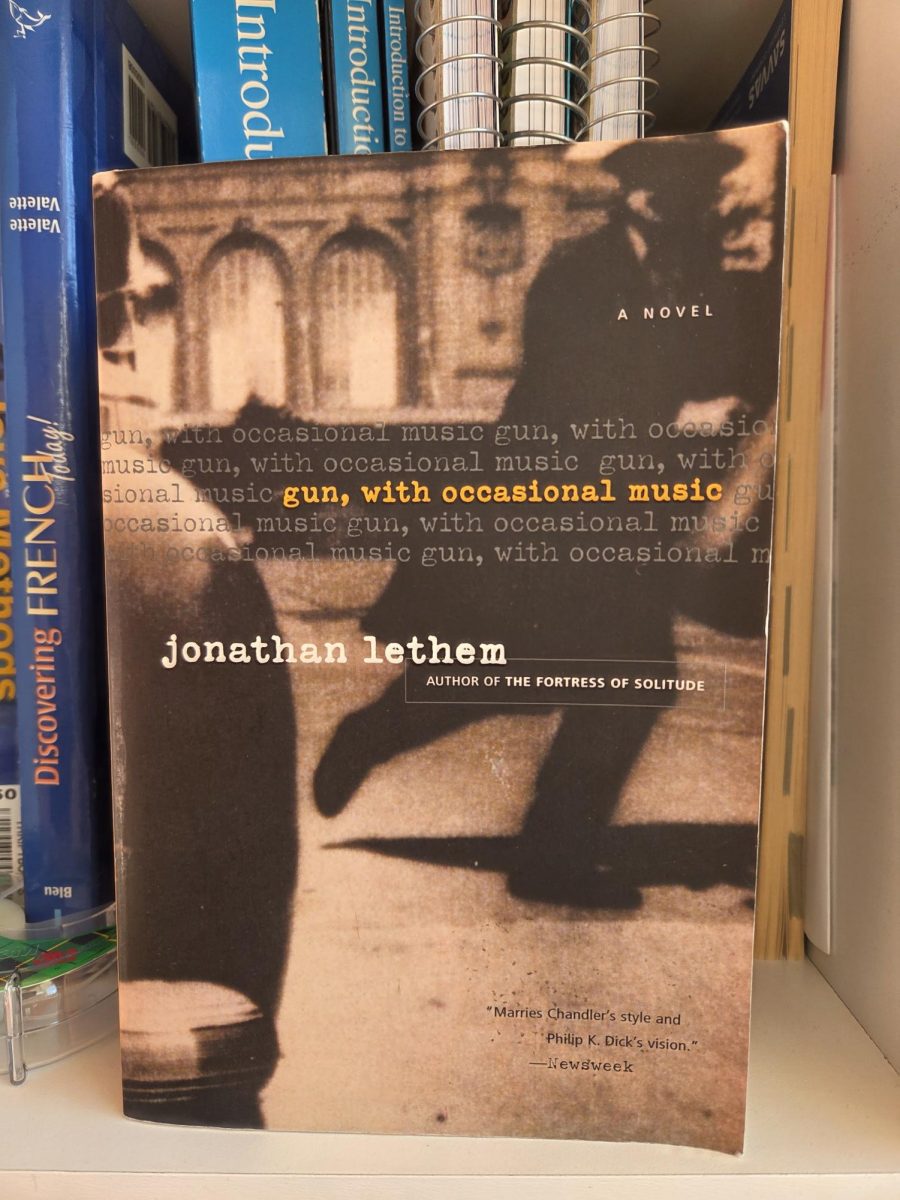WP Interviews: Actress Diane Lane and Director Randall Wallace as they recount “Secretariat” experiences
October 13, 2010
In exclusive press conferences with the Winged Post and other journalists, lead actress Diane Lane and director Randall Wallace divulge their experiences throughout the movie-making process of Secretariat.
In 1973, as the Vietnam War ended and Watergate became national news, Secretariat conquered the holy grail of horseracing – the Triple Crown of Thoroughbred Racing – and his record has not been matched since.
The movie Secretariat, released to theaters October 8, recounts the horse’s career from his birth to the Triple Crown (see Secretariat Review). His spirited, determined owner, the tenacious Penny Chenery Tweedy (Diane Lane), must juggle life as both a mother of four and a new horse owner when her father becomes too ill to carry on the family stables.
Oscar nominee Diane Lane, who plays Tweedy in the movie, grew up in New York City loving horses and was just eight years old when Secretariat first made national headlines.
“I remember the effect that he had on the general population,” Lane said, recalling the excitement. “Everybody took their mind off of what they were doing and just took a break – as if the world stopped spinning on its axis for a moment, and everybody could [stop to] smell the roses.”
Though Lane has acted in a number of films – from her first starring role in the 1979 comedy A Little Romance to her 2002 Oscar-nominated performance in Unfaithful – it was Secretariat’s legend that made this movie special.
“To me, horses were the ultimate,” Lane said. “It never leaves you – that was my totem animal, the horse.”
Getting to know the real Penny Chenery also helped Lane in her performance.
“For me, it was very surreal to spend time talking with her at her home and before filming. That was for me the most sentimental thing that I’ll keep about this experience,” she said.
Through these first-hand accounts, Lane realized that she and Chenery are “both our father’s daughters. We both felt that we had that to live up to as an expectation.”
Lane was able to better understand the hardworking life of a horseracing family like Chenery’s.
“This is a family business, an investment of the family’s good name,” Lane said. “In their own minds, even within their success they were still trying. You’re always trying – you don’t sit back and rest on your laurels ever.”
Director Randall Wallace didn’t sit back and relax either while making the movie. Among one of Hollywood’s Academy Award winning filmmakers, Wallace mentioned that the greatest challenge in making the movie was using a horse as one of the main characters.
“We were dealing with life and death,” he said. “Horseracing is dangerous, and human beings [and horses] get hurt all the time, and we were determined that we weren’t gong to let that happen.”
“I think Randall was a good director for the film – he has a gift for locating honor and valor in a lot of places. It’s not lost on him,” Lane said.
Though only granted a small budget for the film, Wallace was also confident about choosing Lane as one of his starring characters, as he “fought for some of the best actors around.”
“The best people will make the best movie,” he said. “[Diane Lane] brought that kind of mastery to this – a commitment of the heart that is not just skill.”
Filming a story with a predetermined outcome is tricky, so for Wallace, the big editorial decision was how to depict the story in a way that will involve and rivet audiences.
“The movie says love matters, hope works, courage prevails, and that is the universal and at the heart of everything that I’ve ever been taught,” he said.
Apart from the momentous races, the horse birth was considered as one of the most “magical” moments in the movie. Having had to camp out several days to capture that scene, Wallace roots his beliefs in the importance of emotion. As his father once told him “people will remember almost nothing of what you say; they will only remember a little bit more of what you do, but all their lives, they will remember how you made them feel,” he said.
Apart from bringing emotion to the big screen, Wallace hopes that audiences find an even greater meaning in Secretariat.
“I want people to come out of the movie and say it’s worth it to believe and love,” he said. “Victory is not defined by if you’re first to the finish line. It is defined by whether you ran with your heart and you ran your best.”


















![“[Building nerf blasters] became this outlet of creativity for me that hasn't been matched by anything else. The process [of] making a build complete to your desire is such a painstakingly difficult process, but I've had to learn from [the skills needed from] soldering to proper painting. There's so many different options for everything, if you think about it, it exists. The best part is [that] if it doesn't exist, you can build it yourself," Ishaan Parate said.](https://harkeraquila.com/wp-content/uploads/2022/08/DSC_8149-900x604.jpg)




![“When I came into high school, I was ready to be a follower. But DECA was a game changer for me. It helped me overcome my fear of public speaking, and it's played such a major role in who I've become today. To be able to successfully lead a chapter of 150 students, an officer team and be one of the upperclassmen I once really admired is something I'm [really] proud of,” Anvitha Tummala ('21) said.](https://harkeraquila.com/wp-content/uploads/2021/07/Screen-Shot-2021-07-25-at-9.50.05-AM-900x594.png)







![“I think getting up in the morning and having a sense of purpose [is exciting]. I think without a certain amount of drive, life is kind of obsolete and mundane, and I think having that every single day is what makes each day unique and kind of makes life exciting,” Neymika Jain (12) said.](https://harkeraquila.com/wp-content/uploads/2017/06/Screen-Shot-2017-06-03-at-4.54.16-PM.png)








![“My slogan is ‘slow feet, don’t eat, and I’m hungry.’ You need to run fast to get where you are–you aren't going to get those championships if you aren't fast,” Angel Cervantes (12) said. “I want to do well in school on my tests and in track and win championships for my team. I live by that, [and] I can do that anywhere: in the classroom or on the field.”](https://harkeraquila.com/wp-content/uploads/2018/06/DSC5146-900x601.jpg)
![“[Volleyball has] taught me how to fall correctly, and another thing it taught is that you don’t have to be the best at something to be good at it. If you just hit the ball in a smart way, then it still scores points and you’re good at it. You could be a background player and still make a much bigger impact on the team than you would think,” Anya Gert (’20) said.](https://harkeraquila.com/wp-content/uploads/2020/06/AnnaGert_JinTuan_HoHPhotoEdited-600x900.jpeg)

![“I'm not nearly there yet, but [my confidence has] definitely been getting better since I was pretty shy and timid coming into Harker my freshman year. I know that there's a lot of people that are really confident in what they do, and I really admire them. Everyone's so driven and that has really pushed me to kind of try to find my own place in high school and be more confident,” Alyssa Huang (’20) said.](https://harkeraquila.com/wp-content/uploads/2020/06/AlyssaHuang_EmilyChen_HoHPhoto-900x749.jpeg)









